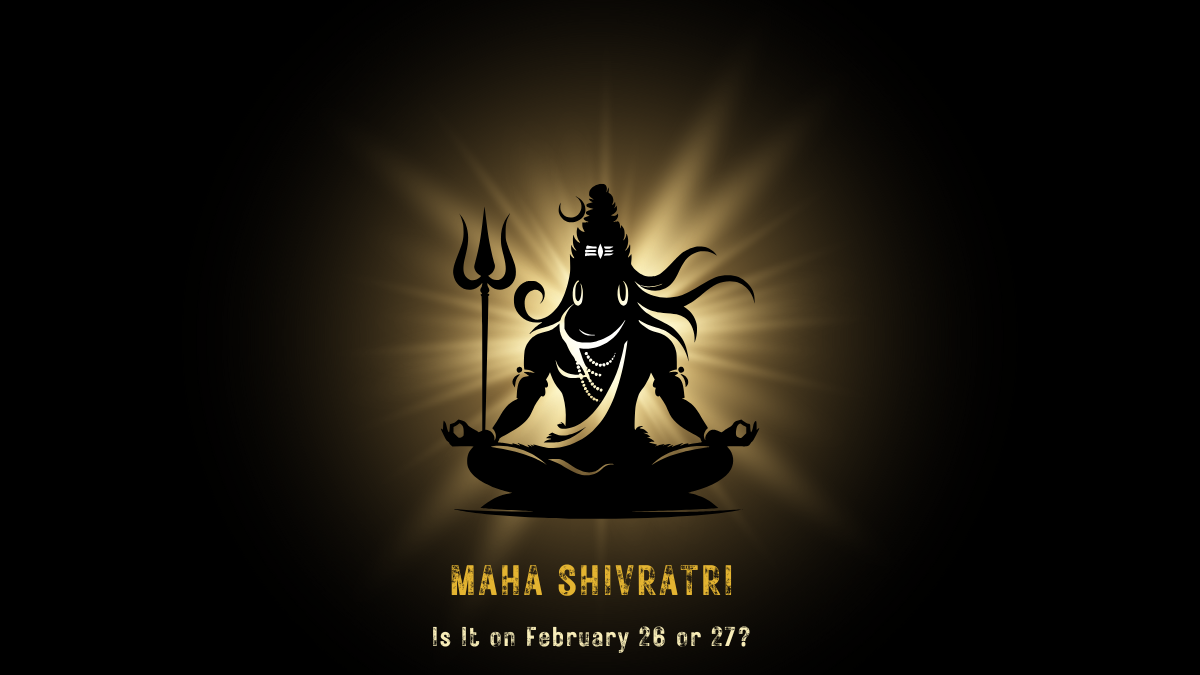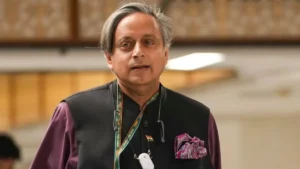Maha Shivaratri, one of the most sacred Hindu festivals, is devoted to the worship of Lord Shiva. This festival is observed with great devotion across India and by Hindus worldwide. Maha Shivaratri 2025 will be celebrated on Wednesday, February 26. It marks the cosmic union of Lord Shiva and Goddess Parvati, symbolizing the divine balance of male and female energies. Additionally, the festival is linked to Lord Shiva’s Tandava dance and his savior role in consuming the lethal poison Halahala during the Samudra Manthan (Churning of the Ocean).
Significance of Maha Shivaratri
Maha Shivaratri is observed on the fourteenth day (Chaturdashi) of the Krishna Paksha (waning moon) in the Hindu month of Phalguna. This period usually falls in late February or early March. The night of Maha Shivaratri is considered highly sacred for spiritual enlightenment, self-reflection, and seeking blessings from Lord Shiva. Devotees believe that worshiping Lord Shiva on this night can cleanse their soul, remove past karmic burdens, and enhance spiritual growth.
Spiritual Benefits of Observing Maha Shivaratri
- Enhances spiritual consciousness and devotion.
- Helps in overcoming darkness and ignorance.
- Removes sins and past karmic debts.
- Brings peace, prosperity, and divine blessings.
Maha Shivaratri 2025: Key Dates and Timings
According to Hindu traditions, Maha Shivaratri follows the Chaturdashi Tithi (14th lunar day), which begins and ends as per the Hindu Panchang. Here are the crucial timings:
- Chaturdashi Tithi Begins: February 26, 2025, at 11:08 AM
- Chaturdashi Tithi Ends: February 27, 2025, at 08:54 AM
- Nishita Kaal Puja Time: February 26, 2025, 11:58 PM – 12:48 AM (Midnight)
- Shivaratri Parana (Fast-Breaking Time): February 27, 2025, 06:47 AM – 08:54 AM
Four Prahars of Night Puja Timings
- First Prahar: February 26, 2025, 06:18 PM – 09:25 PM
- Second Prahar: February 26, 2025, 09:25 PM – 12:33 AM
- Third Prahar: February 27, 2025, 12:33 AM – 03:40 AM
- Fourth Prahar: February 27, 2025, 03:40 AM – 06:47 AM
Maha Shivaratri Rituals and Traditions
Abhishekam (Ritual Bathing of Shiva Lingam)
One of the most significant rituals of Maha Shivaratri is Abhishekam, the ceremonial bathing of the Shiva Lingam with five sacred elements (Panchamrit):
- Milk – Symbolizes purity and piety.
- Curd – Represents prosperity and good fortune.
- Honey – Signifies sweet speech and harmonious relationships.
- Sugar Powder (Bora) – Stands for happiness and well-being.
- Ghee – Denotes strength and victory.
While performing the Abhishekam, devotees chant “Om Namah Shivaya”, seeking divine blessings and spiritual enlightenment.
Mantra Chanting and Prayers
Chanting of sacred Shiva mantras plays a crucial role in Maha Shivaratri celebrations. Devotees recite:
- Mahamrityunjaya Mantra: A powerful mantra for health and longevity.
- Om Namah Shivaya: A universal prayer for divine blessings.
- Shiva Chalisa & Shiva Sahasranama: Hymns in praise of Lord Shiva.
Aarti and Evening Rituals
The Maha Shivaratri puja concludes with an Aarti, where devotees offer lamps (Deepa) to Lord Shiva, reciting hymns like “Jai Shiv Omkara”. The resonance of conch shells and temple bells creates an aura of divine spirituality.
Fasting Rules on Maha Shivaratri
Fasting is a crucial part of Maha Shivaratri observances. Devotees follow different types of fasts:
- Nirjala Fast – A strict fast without food or water.
- Falahar Fast – Only fruits, milk, and dry fruits are consumed.
- Partial Fast – Light vegetarian meals, excluding grains and pulses.
The fast is broken the next morning, following the Shivaratri Parana Muhurat, with fruits, milk, and sattvic food.
Night Vigil and Meditation (Jagran)
Devotees remain awake throughout the night, meditating and chanting Shiva bhajans. This practice symbolizes overcoming ignorance and attaining divine consciousness.
Benefits of Night Vigil
- Awakens spiritual energy and devotion.
- Strengthens self-discipline and mental focus.
- Invokes Lord Shiva’s blessings for well-being and prosperity.
Visiting Shiva Temples
Pilgrims visit famous Shiva temples on Maha Shivaratri to seek divine blessings. Some of the most revered Shiva temples include:
- Kashi Vishwanath Temple – Varanasi, Uttar Pradesh
- Kedarnath Temple – Uttarakhand
- Somnath Temple – Gujarat
- Mahakaleshwar Temple – Ujjain, Madhya Pradesh
- Trimbakeshwar Temple – Maharashtra
Temples witness grand celebrations, processions, and mass prayers, making the festival a spiritually enriching experience.



 NIM–JIM&WS Team Successfully Summits...
NIM–JIM&WS Team Successfully Summits...
 Gamini Gives Birth to Three Cubs at Kuno...
Gamini Gives Birth to Three Cubs at Kuno...
 Shashi Tharoor Conferred Honorary D.Litt...
Shashi Tharoor Conferred Honorary D.Litt...








